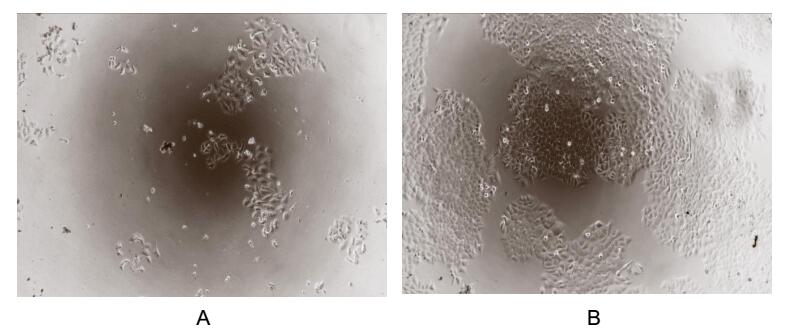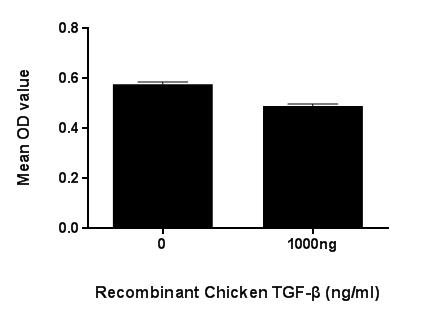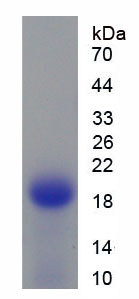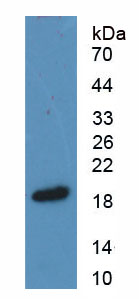
Details
ACTIVITY TEST
Buffer Formulation PBS, pH7.4, containing 0.01% SKL, 5% Trehalose. Traits Freeze-dried powder Purity > 90% Isoelectric Point 8.9 Applications Cell culture; Activity Assays.

Transforming growth factor beta (TGF-β) is a multifunctional cytokine belonging to the transforming growth factor superfamily. The TGF-β superfamily includes endogenous growth inhibiting proteins; an increase in expression of TGF-β often correlates with the malignancy of many cancers and a defect in the cellular growth inhibition response to TGF-β. Its immunosuppressive functions then come to dominate, contributing to oncogenesis. To test the effect of TGF-β on inhibit HGF-dependent proliferation, HepG2 cells were seeded into triplicate wells of 96-well plates at a density of 2,000 cells/well and allowed to attach, replaced with serum-free overnight, then the medium was replaced with 2% serum standard DMEM including 1ng/mL HGF prior to the addition of various concentrations of recombinant chicken TGF-β. After incubated for 96h, cells were observed by inverted microscope and cell proliferation was measured by Cell Counting Kit-8 (CCK-8). Briefly, 10µL of CCK-8 solution was added to each well of the plate, then the absorbance at 450nm was measured using a microplate reader after incubating the plate for 1-4 hours at 37℃. The inhibitory effect of TGF-β on HGF-dependent proliferation of HepG2 cells observed by inverted microscope was shown in Figure1. Cell viability was assessed by CCK-8 assay after incubation with recombinant TGF-β for 96h. The result was shown in Figure 2. It was obvious that TGF-β significantly decreased cell viability of HepG2 cells. (A) HepG2 cells cultured in DMEM, stimulated with 1µg/mL TGF-β for 96h; (B) Unstimulated HepG2 cells cultured in DMEM for 96h.
Figure. The inhibitory effect of TGF-β on cell proliferation of HepG2 cells.
Figure. TGF-β inhibit cell proliferation of HepG2 cells.
USAGE
Reconstitute in 10mM PBS (pH7.4) to a concentration of 0.1-1.0 mg/mL. Do not vortex.
STORAGE
Avoid repeated freeze/thaw cycles. Store at 2-8°C for one month. Aliquot and store at -80°C for 12 months.
STABILITY
The thermal stability is described by the loss rate. The loss rate was determined by accelerated thermal degradation test, that is, incubate the protein at 37°C for 48h, and no obvious degradation and precipitation were observed. The loss rate is less than 5% within the expiration date under appropriate storage condition.
Image

Figure. SDS-PAGE

Figure. Western Blot
Bought notes(bought amounts latest0)
User Comment(Total0User Comment Num)
- No comment


 +86 571 56623320
+86 571 56623320
 +86 18668110335
+86 18668110335

